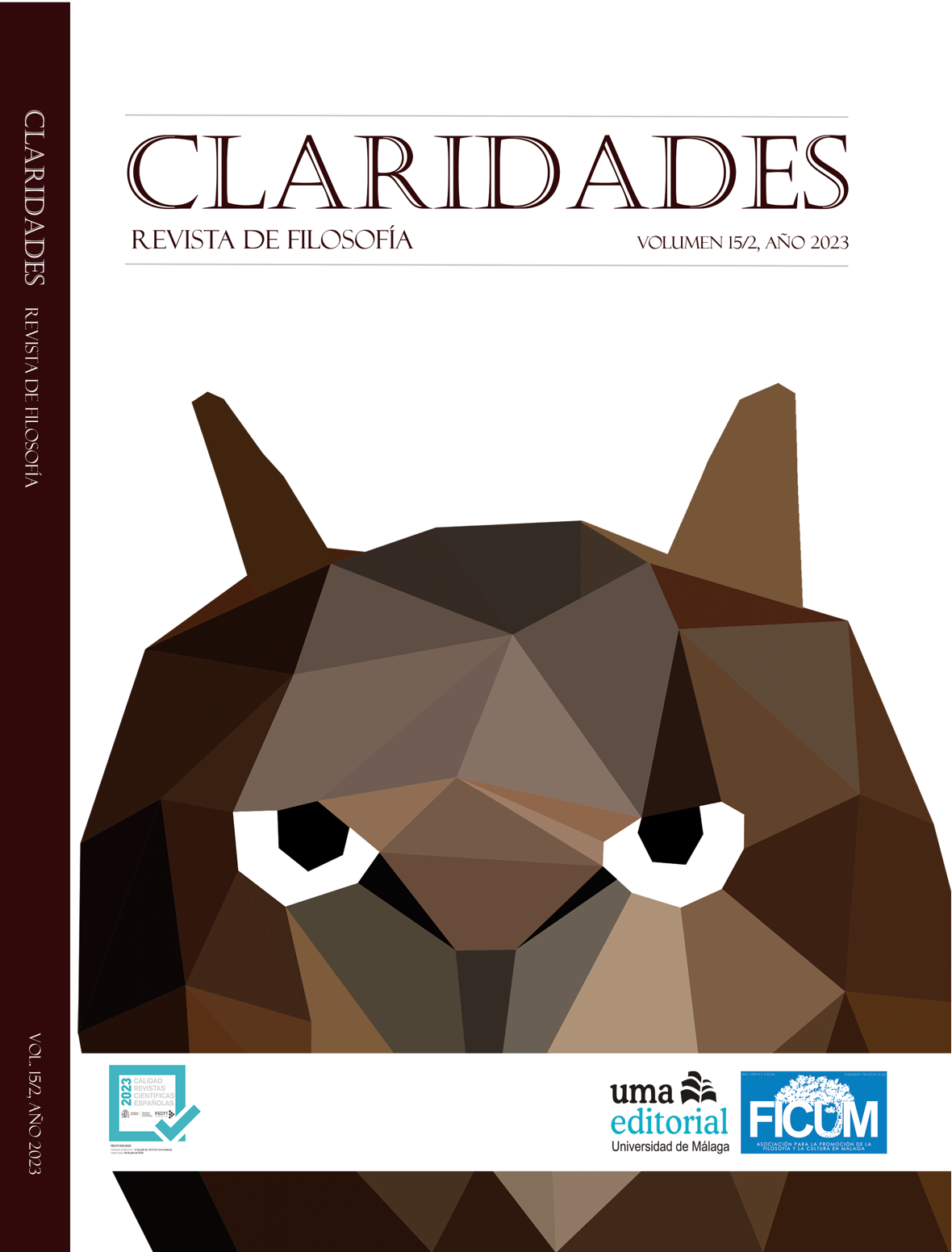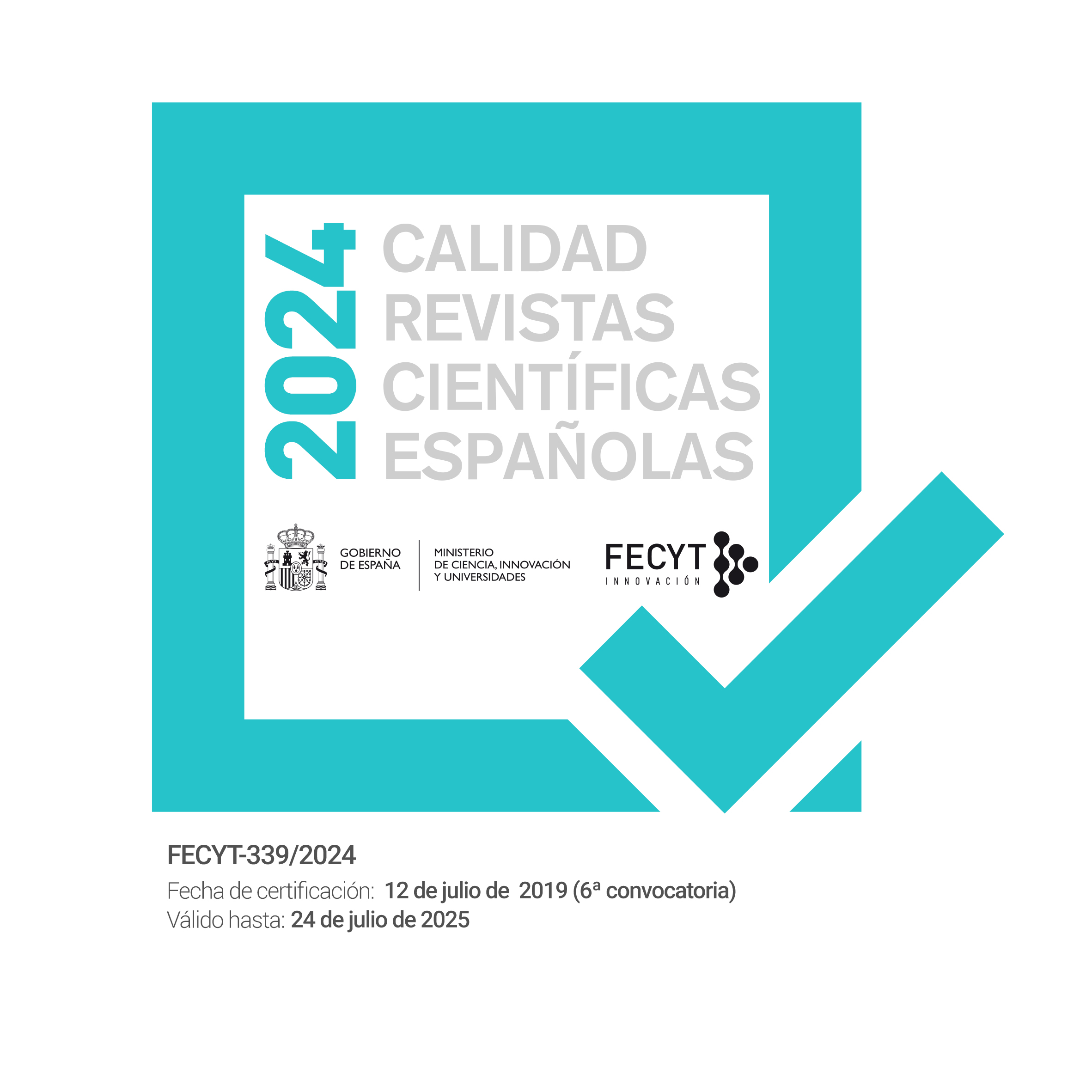Thomas Metzinger’s philosophy of mind:
neurophenomenology, artificial consciousness and pessimism
DOI:
https://doi.org/10.24310/Claridadescrf.v15i2.15061Keywords:
Thomas Metzinger, materialsm, neurophenomenology, transparent self-model, ego tunnelAbstract
In this article we review Thomas Metzinger’s neurophenomenological method and its ability to respond to some problems in philosophy of mind, avoiding difficulties present in other kinds of materialism. Metzinger defines mental states according to brain states, however, unlike eliminative materialism, he does consider phenomenal experience as real and rejects its conceptual or epistemic reduction. This peculiarity saves his proposal
from criticisms such as that of José Ignacio Murillo or Graham Harman, which seem directed at other types of materialisms. Therefore, we consider it necessary to rethink the ethical consequences of the categorical denial of free
will and the affirmation of the possibility of conscious artificial machines that Metzinger’s proposal entails.
Downloads
Metrics
Publication Facts
Reviewer profiles N/A
Author statements
Indexed in
-
—
- Academic society
- N/A
- Publisher
- Asociación para la promoción de la filosofía y la cultura en Málaga (FICUM) y UMAEditorial
References
Arana, J. (2015): La conciencia inexplicada. Madrid: Biblioteca Nueva.
Blanke, O., & Metzinger, T. (2009): Full-body illusions and minimal phenomenal selfhood. Trends in cognitive sciences, 13(1), 7-13.
Chalmers, D. J. (2003): Consciousness and its place in nature. Blackwell guide to the philosophy of mind, 102-142.
Dennett, D. (2006): Dulces sueños: Obstáculos filosóficos para una ciencia de la conciencia (J. Barba & S. Jawerbaum, Trads.). Buenos Aires: Katz Discusiones.
Dennett, D. (2016): Free Will Worth Having. En D. Edmonds & E. Warburton, Philosophy Bites Again (Oxford University Press: 125-133).
Harman, G. (2011): The Problem With Metzinger. Cosmos and History: The Journal of Natural and Social Philosophy, 7(1), 7-36.
Lenggenhager, B., Tadi, T., Metzinger, T., & Blanke, O. (2007): Video ergo sum: Manipulating bodily self-consciousness. Science, 317(5841), 1096-1099.
Maroufkhani, K. P. (2017): Selfhood and the Metaphysics of Altruism. Universidad de Hawái, Manoa.
Metzinger, T. (2003): Being No One: The Self-Model Theory of Subjectivity. The MIT Press. https://doi.org/10.7551/mitpress/1551.001.0001
Metzinger, T. (2017): Benevolent Artificial Anti-Natalism. Edge. Recuperado de https://www.edge.org/conversation/thomas_metzinger-benevolent-artificial-anti-natalism-baan
Metzinger, T. (2018): El túnel del yo: Ciencia de la mente y mito del sujeto. Madrid: Enclave de libros.
Metzinger, T. (2021): Artificial suffering: An argument for a global moratorium on synthetic phenomenology. Journal of Artificial Intelligence and Consciousness, 8(01), 43-66.
Murillo, J. I. (2011): Apariencia y realidad del yo: Una aproximación crítica a la propuesta de Thomas Metzinger. En El asalto a lo mental: Neurociencias, consciencia y libertad (pp. 113-124). Madrid: Biblioteca Nueva.
Sellars, W. (1971): Ciencia, percepción y realidad. Madrid: Tecnos.
Tomasik, B. (2018): Is There A Hard Problem of Consciousness? Essays on reducing suffering. Revisado el 1 de junio de 2022, https://reducing-suffering.org/hard-problem-consciousness/
Weisberg, J. (2005): Consciousness constrained. Psyche, 11(5), 1-20.
Downloads
Published
How to Cite
Issue
Section
License
Copyright (c) 2023 José Curbera Luis

This work is licensed under a Creative Commons Attribution-NonCommercial-ShareAlike 4.0 International License.
Esta revista provee acceso libre inmediato a su contenido bajo el principio de hacer disponible gratuitamente la investigación al público. Todos los contenidos publicados en Claridades. Revista de Filosofía, están sujetos a la licencia Creative Commons Reconocimento-NoComercia-Compartirigual 4.0 cuyo texto completo puede consultar en <http://creativecommons.org/licenses/by-nc-sa/4.0>
Es responsabilidad de los autores/as obtener los permisos necesarios de las imágenes que están sujetas a derechos de autor.
Los autores/as cuyas contribuciones sean aceptadas para su publicación en esta revista conservarán el derecho no exclusivo de utilizar sus
contribuciones con fines académicos, de investigación y educativos, incluyendo el auto-archivo o depósito en repositorios de acceso abierto de cualquier tipo.
La edición electrónica de esta revista esta editada por la Editorial de la Universidad de Málaga (UmaEditorial), siendo necesario citar la procedencia en cualquier reproducción parcial o total.

















6.png)
